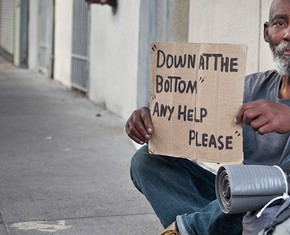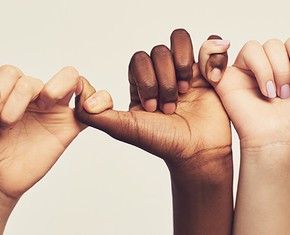The views expressed in our content reflect individual perspectives and do not represent the authoritative views of the Baha'i Faith.
How do you define yourself? Do you most resonate with a certain classification? Your gender? Your race? Nationality? Religion?
Maybe you primarily identify as an Asian, Arab, Brazilian, or German, for example? Maybe your religious or non-religious beliefs comprise the core of your identity—as a Jew, Catholic, or an atheist. In our now overly partisan political climate, perhaps your political affiliation seems paramount.
Maybe it’s just me, but I am seeing a trend for people to identify in ever smaller categories or groupings—and that troubles me. If people operate from one narrow identity and frame of reference, they can, potentially, close themselves off from a larger experience—both of whom they are as a total human being, and of whom other people are as well.
As a Baha’i, I know that my Faith honors the legitimate attachments people may feel for their race, or culture, or country. But, it also posits that we are only going to advance—materially and spiritually—by embracing a wider loyalty. The Baha’i writings consistently advocate for the essential oneness of humanity and for a human fraternity that is, essentially, spiritual in nature.
I’ve used the following quote from the Baha’i-inspired Institute for Studies in Global Prosperity before, but I repeat it here because it frames this concept very nicely:
Men and women of insight, often inspired by the sacred scriptures of the world, have throughout history sought to broaden human consciousness by drawing attention to that which is most essential about human nature: the inner reality with which every human being is born, the reflection of the Divine in each of us, that which we all share in common, that which is whole within us, as opposed to the fragmented labels with which society tags us in the course of our life. – Advancing Toward the Equality of Women and Men, ISGP, December 2009.
It’s useful to ponder the consequences of adopting ever smaller fragmented labels. People can become so attached to a single identity that it prevents them from seeing the bigger picture, from recognizing the multiple identities we all have, and from valuing the common humanity in each other.
When people fixate on one particular identity, it can cause strongly held “us vs. them” divisions to take hold, and violence can result. We have many contemporary examples—Tutsis vs. Hutus; Israelis vs. Palestinians; Serbs vs. Albanians; Muslims vs. Buddhists; and Democrats vs. Republicans. These divergent identities, if over-emphasized, can create conflict. Entire societies can, and do, get swept up in false narratives of disdain for those of other races, nationalities, religions or political parties. This flame gets fanned when such movements have charismatic, but divisive leaders or politicians who demonize and separate rather than harmonize and unite.
Today, I believe the world is witnessing one particularly destructive over-attachment—to national identities. Shoghi Effendi, who led the Baha’i Faith for several decades before his death in 1957, addressed several false, narrow, ideologies that can lead humankind down a path of ruin—one of those, he said, was nationalism. As the following quote implies, it is perhaps time to reconsider this ideology, which many people still think of as the be-all-and-end-all of societal organization:
Unity of family, of tribe, of city-state, and nation have been successively attempted and fully established. Nation-building has come to an end. The anarchy inherent in state sovereignty is moving towards a climax. A world, growing to maturity, must abandon this fetish, recognize the oneness and wholeness of human relationships, and establish once [and] for all the machinery that can best incarnate this fundamental principle of life. – Shoghi Effendi, The World Order of Baha’u’llah, p. 202.
I am not denigrating patriotism per se. Loyalty to a national heritage is an important part of how societies are organized and celebrated. The Baha’i Faith also advocates for a “sane and intelligent patriotism.” However, we all have a problem when any particular ideology or “ism” goes beyond the boundaries of moderation. Plenty of examples exist throughout history of what happens when extreme nationalism becomes ascendant. German nationalism before WWII comes most easily to mind, but, today, we are also seeing the rise of extreme nationalist movements in, for example, many countries in Africa, Europe and here in the United States.
Hopefully, things will not get far worse before they get better on this front—even though crisis seems to be the only way that humanity learns its lessons. Nation states may well fight to the death and very possibly engage in another potentially catastrophic world war. But, after we go through those crises, what do we turn to?
It may happen in a more distant vs. immediate future, but the vision of the Baha’i Faith is that nations weary of war and violence will eventually understand the world’s symbiotic relationships and put the machinery in place to address our shared global challenges:
It [the Baha’i Faith] subordinates, without hesitation or equivocation, every particularistic interest, be it personal, regional, or national, to the paramount interests of humanity, firmly convinced that in a world of interdependent peoples and nations the advantage of the part is best to be reached by the advantage of the whole, and that no abiding benefit can be conferred upon the component parts if the general interests of the entity itself are ignored or neglected. – Shoghi Effendi, The World Order of Baha’u’llah, p. 197.
You May Also Like
Comments

















beyond all belief systems, beyond race and nationality.